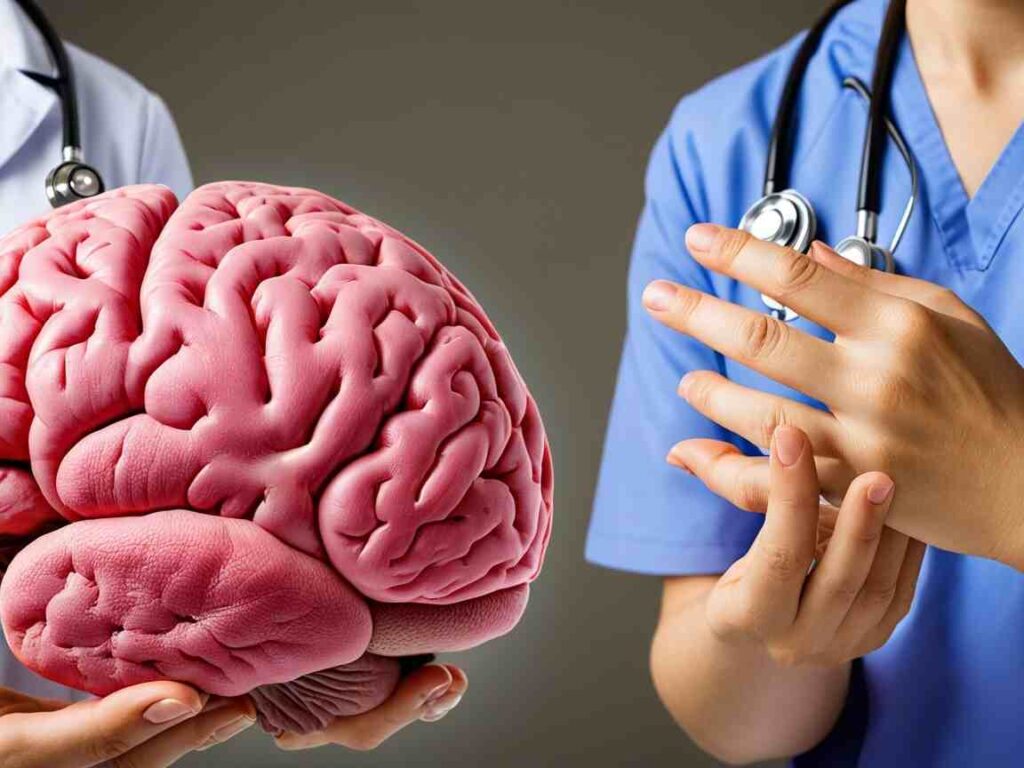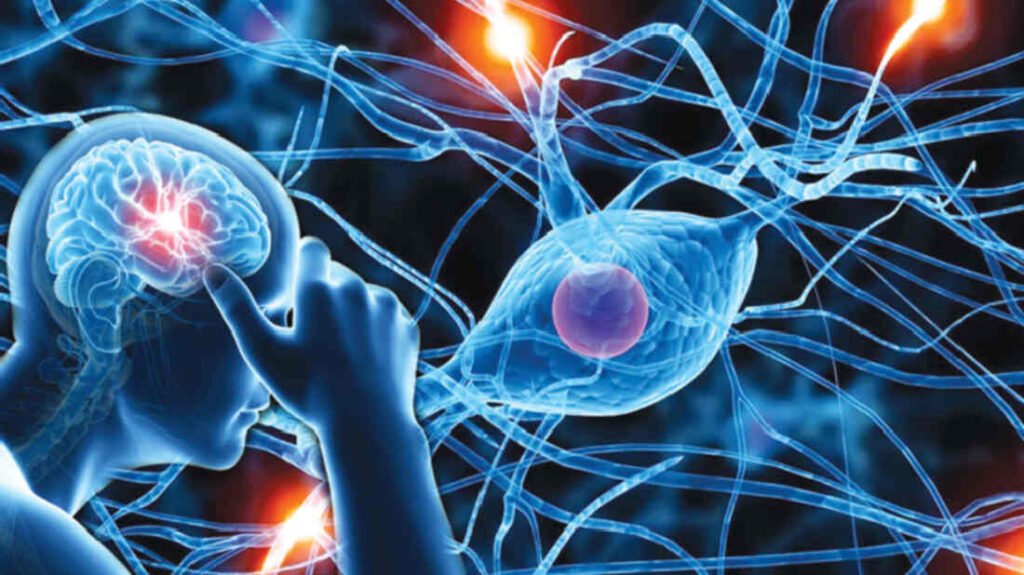Doctorhub360.Com Neurological Diseases – A Complete Overview!

Neurological diseases affect millions of people worldwide, impacting the brain, spinal cord, and nervous system. These conditions can range from mild to severe, and understanding them is key to early diagnosis and effective management. At DoctorHub360, we aim to provide clear and comprehensive information to help you understand these conditions, their causes, symptoms, and treatments.
Let’s dive into a detailed guide on neurological diseases and how they can be managed.
Table of Contents
What Are Neurological Diseases?

Neurological diseases refer to disorders that affect the nervous system, which includes the brain, spinal cord, and nerves. The nervous system is responsible for coordinating and controlling all bodily functions, so any disruption can lead to significant health issues.
These diseases can interfere with motor skills, sensory abilities, cognitive functions, and more, resulting in a wide range of symptoms such as muscle weakness, difficulty speaking, memory problems, or even paralysis.
Neurological diseases can be categorized into various types based on the areas they affect or their underlying causes. Some are chronic, while others may occur suddenly due to trauma or infection.
Common Neurological Disorders:
Here are some of the most common neurological conditions, along with detailed explanations:
- Alzheimer’s Disease
- A progressive condition primarily affecting older adults, Alzheimer’s disease is characterized by memory loss, confusion, and a decline in cognitive abilities. It occurs due to the buildup of abnormal proteins in the brain, which damages brain cells.
- Early symptoms include forgetting recent events and difficulty in planning. As the disease progresses, it can lead to severe memory impairment and an inability to perform daily tasks.
- Parkinson’s Disease
- Parkinson’s disease is a movement disorder caused by the loss of dopamine-producing neurons in the brain. Symptoms include tremors, muscle stiffness, and slow movement.
- It can also affect non-motor functions like sleep, mood, and digestion. While there’s no cure, medications and therapies can help manage symptoms.
- Epilepsy
- Epilepsy is a condition characterized by recurring seizures caused by abnormal electrical activity in the brain. Seizures can range from mild staring spells to severe convulsions.
- Triggers may include stress, lack of sleep, or flashing lights. Medications, lifestyle adjustments, and in some cases, surgery, can help control seizures.
- Stroke
- A stroke occurs when blood flow to the brain is interrupted, either due to a blocked artery (ischemic stroke) or a burst blood vessel (hemorrhagic stroke). This leads to brain cell death in the affected area.
- Symptoms include sudden weakness, difficulty speaking, vision problems, and loss of coordination. Immediate medical attention is crucial to minimize damage.
- Multiple Sclerosis (MS)
- MS is an autoimmune disease where the immune system attacks the protective covering of nerves, called myelin. This disrupts communication between the brain and the body.
- Symptoms vary widely and may include fatigue, numbness, and difficulty walking. Treatment focuses on slowing the disease’s progression and managing symptoms.
- Migraine
- Migraines are severe headaches often accompanied by nausea, vomiting, and sensitivity to light and sound. They can be triggered by stress, hormonal changes, or certain foods.
- Preventive medications and lifestyle changes can help reduce the frequency and severity of migraines.
What Causes Neurological Diseases?
The causes of neurological disorders are diverse and may include:
- Genetics: Inherited conditions such as Huntington’s disease or genetic predispositions to conditions like epilepsy.
- Infections: Bacterial or viral infections, such as meningitis, encephalitis, or Lyme disease, can directly affect the nervous system.
- Trauma: Physical injuries to the brain or spinal cord from accidents, falls, or sports can lead to neurological damage.
- Lifestyle Factors: Poor diet, lack of exercise, or exposure to environmental toxins like heavy metals can increase the risk of neurological diseases.
- Aging: The natural aging process can lead to degenerative conditions such as Alzheimer’s and Parkinson’s disease.
- Chronic Conditions: Diseases like diabetes or hypertension can indirectly contribute to neurological complications.
Also Read: 5starsstocks – A Powerful Tool For Stock Market Success!
Symptoms to Watch Out For:
Neurological diseases manifest differently depending on the specific condition. However, some common symptoms include:
- Chronic headaches or migraines
- Loss of sensation or tingling in limbs
- Muscle weakness or paralysis
- Difficulty speaking or swallowing
- Problems with memory or cognitive functions
- Changes in mood or behavior
- Loss of balance or coordination
- Seizures or convulsions
Recognizing these symptoms early can significantly improve outcomes. Always consult a healthcare provider if you notice persistent or worsening symptoms.
Diagnosis and Treatment:
Diagnosing neurological disorders typically involves a combination of:
- Imaging Tests: MRI, CT scans, and PET scans provide detailed images of the brain and spinal cord to detect abnormalities.
- Blood Tests: These help identify infections, genetic markers, or other underlying conditions contributing to symptoms.
- Neurological Exams: A thorough evaluation of reflexes, muscle strength, coordination, and sensory responses.
- Electrodiagnostic Tests: EEGs and EMGs measure electrical activity in the brain and muscles.
Treatment Options:
Treatment plans are tailored to each individual and may include:
- Medications:
- Antiepileptics for epilepsy
- Dopaminergic drugs for Parkinson’s disease
- Pain relievers or preventive medications for migraines
- Physical Therapy:
- Improves mobility, strength, and coordination, especially for conditions like MS or post-stroke recovery.
- Surgical Interventions:
- Procedures to remove tumors, repair spinal injuries, or implant devices like deep brain stimulators.
- Lifestyle Adjustments:
- Adopting a healthy diet, regular exercise, stress management, and adequate sleep can significantly impact overall neurological health.
- Supportive Therapies:
- Occupational therapy, speech therapy, and psychological counseling to enhance quality of life.
How DoctorHub360 Can Help?

At DoctorHub360, we provide a wealth of resources for individuals and families dealing with neurological diseases. Our platform offers:
- Access to Specialists: Connect with experienced neurologists for expert advice and treatment options.
- Educational Resources: Comprehensive articles, videos, and FAQs to help you understand your condition better.
- Personalized Care Plans: Tailored treatment and management strategies based on your unique needs.
- Community Support: Join support groups to share experiences and find encouragement from others facing similar challenges.
Prevention Tips for Neurological Diseases:
While not all neurological conditions can be prevented, adopting a healthy lifestyle can lower your risk. Here are some tips:
- Exercise Regularly: Physical activity improves blood flow to the brain and strengthens the nervous system.
- Eat a Balanced Diet: Focus on foods rich in antioxidants, omega-3 fatty acids, and essential vitamins.
- Manage Stress: Practice mindfulness, meditation, or yoga to reduce stress levels.
- Protect Your Head: Wear helmets during sports or biking to prevent head injuries.
- Stay Informed: Regular health check-ups and early screening for conditions like high blood pressure or diabetes can prevent complications.
“Doctorhub360.” Com Weight Loss:
DoctorHub360.com offers expert-guided weight loss solutions, providing personalized diet plans, fitness routines, and medical advice to help users achieve their health goals. With evidence-based strategies, DoctorHub360 supports sustainable weight management through nutrition, exercise, and lifestyle changes. Whether seeking professional consultations or self-paced guidance, the platform empowers individuals to lose weight safely and effectively for long-term wellness.
Conclusion:
Understanding neurological diseases is the first step toward managing them effectively. These conditions range from migraines to complex disorders like Parkinson’s or Alzheimer’s. Early detection and timely interventions are vital for better outcomes.
DoctorHub360 offers detailed guides on symptoms, treatments, and lifestyle changes, alongside access to top specialists. Whether seeking preventive tips, exploring innovative therapies, or understanding the latest research, we’re here to guide you.
Take charge of your health by exploring our resources or consulting our experts. Your journey to better health starts today with DoctorHub360.Stay informed. Stay empowered. Visit DoctorHub360 for more health insights.
Also Read:







